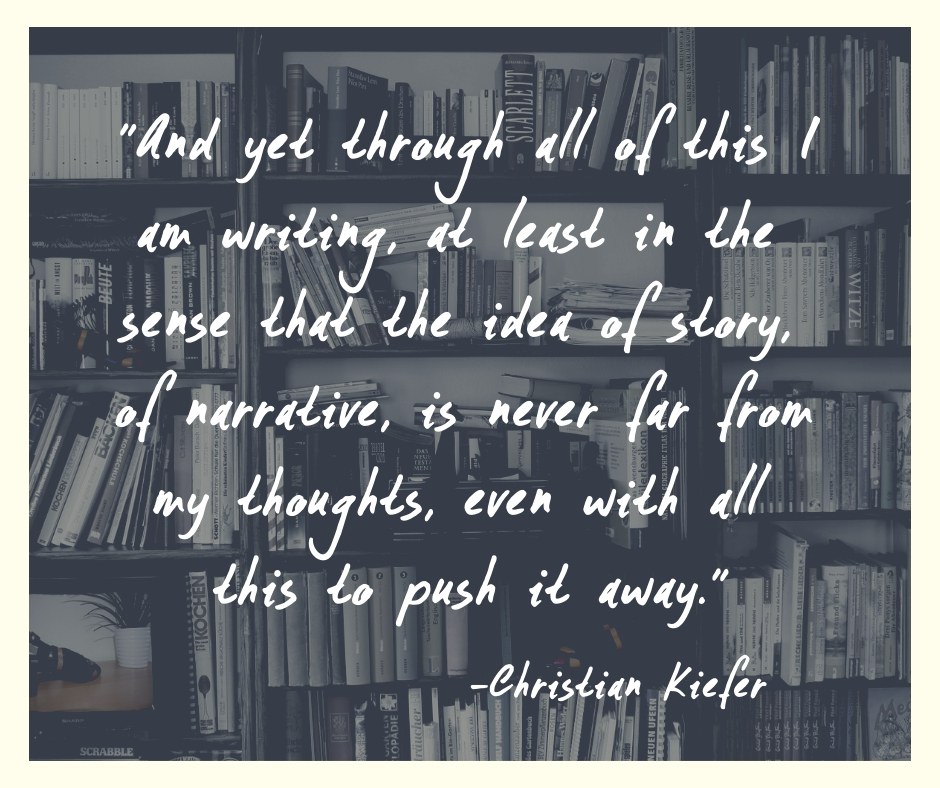I've not made it easy for myself to make albums. Since my first record, Kill Devil Hills in 2003, I have moved from Toronto to London to Dubai to Los Angeles, and each move meant starting my musical career over from scratch. My passion meant I worked hard to resuscitate the monster each time, but it rarely went where I told it to.
After my last record, 2011's The Road To Anhedonia, I started a family, and then began an increasingly demanding day-job, and then got a mortgage, and then there were weeds in the garden that needed tending, and then my car's tire was flat again. I got old and a bit miserable. I felt my recording days were probably over.
Then I read Christian Kiefer's contribution to the blog "How We Spend Our Days." In it, he describes his life, so much more challenging than mine, and explains how he moves through it by always having a novel in his head. He turns sentences around in his mind as he's pumping gas or changing diapers, and the work changes according to his lived experiences. Late in the evening, he is sometimes able to sneak in a few minutes to write down what's been in his head; sometimes not. But, eventually, he has a novel. The value of his project, as I understood it, is not to provide distraction or escape from the everyday, but to provide a structured way of paying meaningful attention to it.
If the everyday is the material for the work, I don't need to escape from it to get things done. And because much of that work can take place in my head, I don't a quiet place to sit and write. I can do it while doing dishes, or commuting, or vacuuming. If I can steal a few minutes to sit down with a guitar or a computer, that’s great, but it’s only for "writing up" anyway.
So, I found myself writing, and, for the first time, I was writing with urgency. My life had changed but my understanding hadn't caught up, so while tending the house, I was working on little lyrical snippets that helped me reframe the life I was living, and then playing with melodies to bring those snippets to life. These new songs and bits of songs were longer and sadder and odder than anything I'd written before, shaped by these worried thoughts about middle age, memory, regret (oh so much regret) and, indeed, failure.
Slowly, I began to talk to my close friends about the things I’d written, and they responded with love and generosity. Soon, I had one friend arranging and recording string parts for me in Vancouver, another composing piano lines in Toronto, and old bandmates messing around with synthesizers in Calgary and Iowa City. And, right here in Los Angeles, I begin to learn that my new friends had hidden talents: just through my friends at USC, where I teach, I found a singer, a bassist, and a drummer, all of whom were excited to share their time and talent. We worked in snippets and stolen moments, sharing parts online that I then pieced together on my phone while running between classes, and which I then played back in the car as my daughter listened, often shouting “another daddy song!”
I have no idea if any of this is apparent in the finished product, but, honestly, it doesn't matter all that much to me. The real value of all this was the process of thinking, not the product. It helped me see and think my world better, and transfigured my experiences. And it continues to do so.
